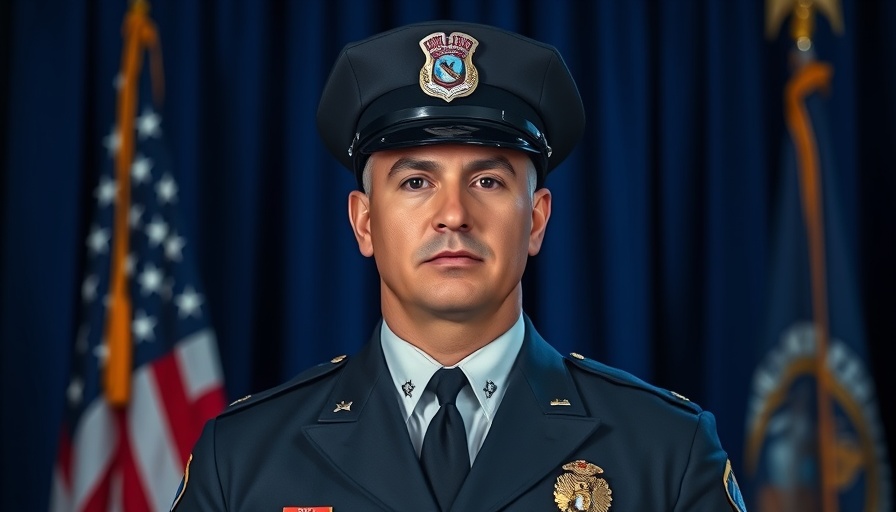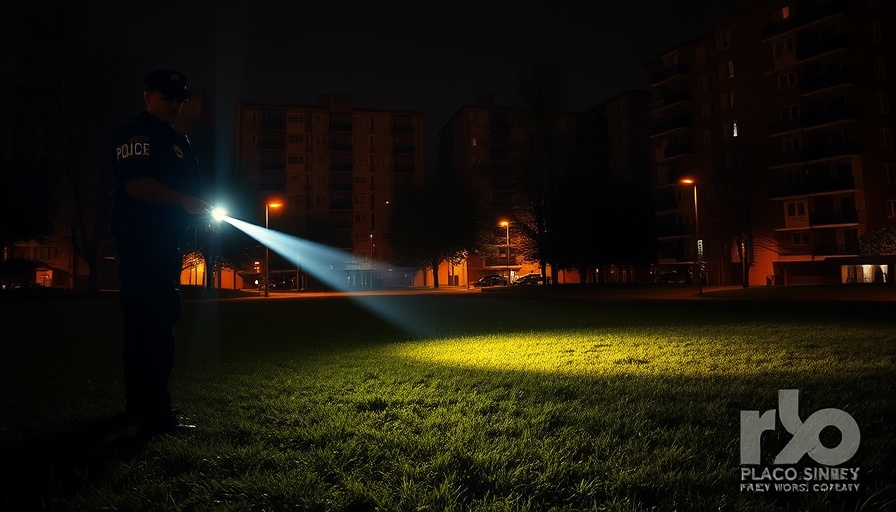
Understanding the Importance of White Chairs in Law Enforcement
During the annual Police Week in Washington, D.C., community members gather to pay tribute to the fallen heroes of law enforcement. Central to this solemn event are the two thousand white folding chairs displayed prominently on the west lawn of the U.S. Capitol. These chairs are not merely furniture; they embody the dedication, sacrifice, and grief that characterizes the law enforcement community.
The Stories Behind the Chairs
Each white chair serves as a poignant reminder of a fallen officer, symbolizing the promise that their sacrifice will never be forgotten. The family members of those who have died in the line of duty utilize these chairs during memorial services, fostering a space for remembrance and shared mourning. For many, such as a young mother from Lafayette, Louisiana, attending these events can be a vital step in coping with heart-wrenching loss. The shared experience allows survivors to navigate grief collectively, understanding they are part of a larger community that honors their loved ones.
The Preparation and Community Efforts
The logistics behind the memorial—a testament to community commitment—underscore the importance of organized support in crisis environments. Dedicated volunteers and staff work tirelessly to set up the thousands of chairs, ensuring that every detail is attended to. This effort not only enhances the memorial experience for grieving families but also highlights how systematic assistance can fortify community ties. Facilities like the U.S. Capitol become extension points of healing and unity, fostering public engagement in law enforcement reform discussions.
Why Police Week Matters
Police Week is more than commemorating the lives lost; it is about reaffirming commitments to community engagement, police culture enhancement, and ensuring that these losses inspire reform and advances in policing strategies. As public safety technology evolves, the narratives shared during Police Week can highlight areas where policy updates are needed, ultimately driving transparency initiatives within law enforcement.
The Broader Implications of Police Memorials
The emotional weight of events like Police Week highlights the intersection between police culture, community trust, and effective policing strategies. By actively engaging with the public, police departments can demonstrate their commitment to reform efforts and community wellness initiatives. Chronicling these events also allows for addressing police accountability and encouraging officer wellness, which is critical for modern policing responsibilities.
Finding Solace in Shared Experiences
Attending Police Week offers more than just memorialization. It opens doors to practical discussions about law enforcement strategies, ethics in modern policing, and community trust strategies—essential elements for the future of public safety. Survivors not only honor their loved ones but also contribute to the ongoing narrative of police care, providing insights that can shape a more empathetic approach to policing practices.
Conclusion: Embracing Community Engagement and Healing
The essence of the white chairs during Police Week encapsulates a profound message: a promise of remembrance, a testament to sacrifice, and a catalyst for transformation within the law enforcement community. As organizations reflect upon the tragedies represented by these chairs, they can collectively foster an environment aimed at reducing loss and improving public safety through innovation and understanding.
 Add Row
Add Row  Add
Add 

 Add Element
Add Element  Add Row
Add Row 




Write A Comment